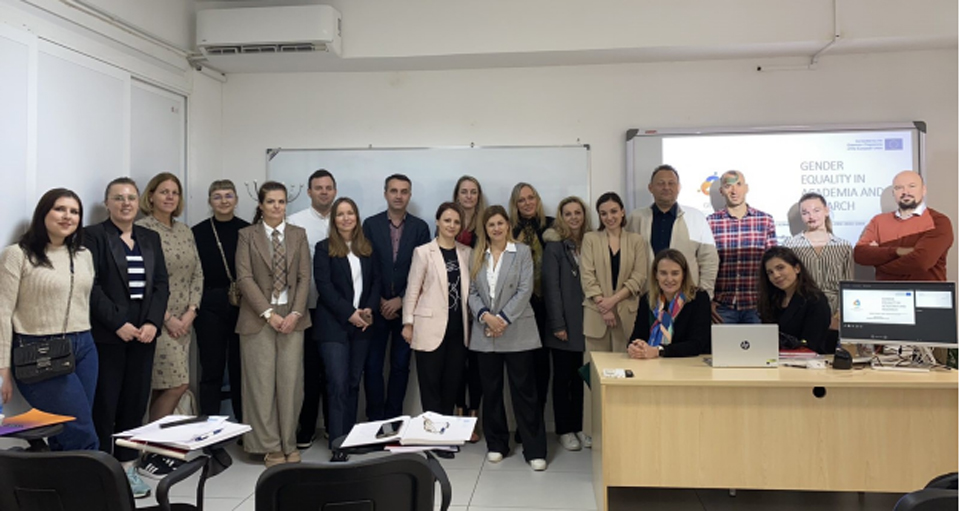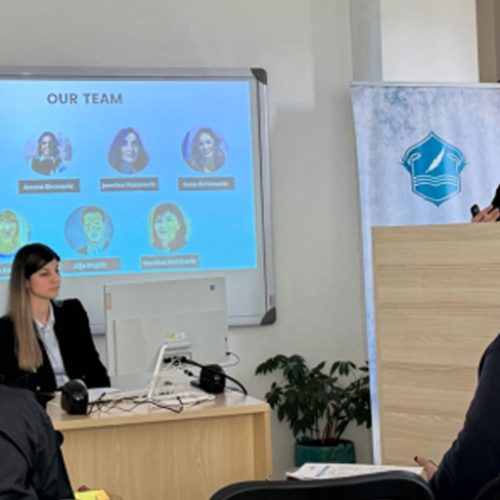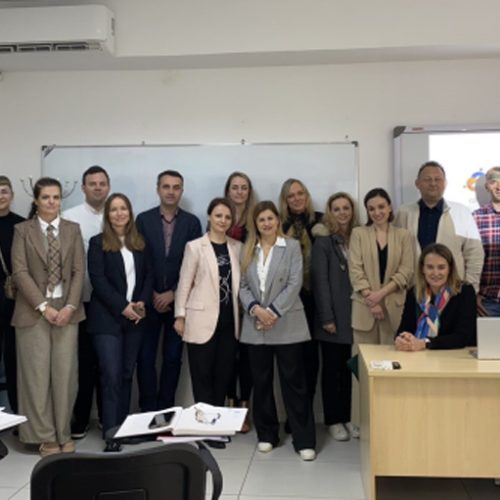 |
 |
On Monday and Tuesday, February 26th and 27th, at the Faculty of Management Herceg Novi (University Adriatic Bar), Montenegro, kick-off meeting for Erasmus+ project GEAR: Gender Equality in Academia and Research was held.
The meeting was attended by project partners from Montenegro, Bosnia and Herzegovina, the Republic of Serbia, Lithuania and Slovenia. The University of Tuzla was presented by Alma Šećerbegović, assistant professor, institutional coordinator of the project and Amera Sinanović, MA, team member. The team for the implementation of the project activities consists of the Rector of the University of Tuzla, Full Professor Nermina Hadžigrahić, researchers from the Faculty of Philosophy and Mathematics and the Faculty of Electrical Engineering.
The main objective of the Erasmus+ project GEAR is to support addressing the pressing regional society’s issues stemming from gender inequality in education, science and work and in line with recent developments corresponding to the fourth industrial revolution and regional economic development. Additionally, the project provides venues for inclusive action of the HE underrepresented women, i.e. Roma, especially in the aftermath of COVID19 educational equality and accessibility crises. Hence, the action addresses both quality and relevance of the HE in beneficiary communities and countries.
The action contributes to the overarching priority of the European Commission for the Western Balkans: Sustainable growth and jobs: Quality education is a key factor for securing growth and jobs and for addressing challenges linked to unemployment and skills mismatches. Investing in human capital and entrepreneurship helps societies to prepare for the future, by putting a halt to brain drain and supporting the transition to a knowledge-based economy.
Partners in the project, apart from the Faculty of Management Herceg Novi, as a coordinator, are University Vilniaus, Lithuania, University in Maribor, Slovenia, University of Montenegro, NUBL, B&H, University in Tuzla, B&H, University Singidunum, Serbia, as well as organizations GirlThing Tuzla, B&H, Socio-Economic Center of Montenegro, and Western Balkan Institute from Belgrade.
Both days of the meeting were working days, with the analysis of the current conditions regarding gender equality, with particular attention paid to science and research, planning of following activities – meetings and workshops, and organization of work packages and project itself.
The project will last for three years, and it is expected to be completed by November 30th 2026.
____________
Funded by the European Union. Views and opinions expressed are however those of the author(s) only and do not necessarily reflect those of the European Union or European Education and Culture Executive Agency (EACEA). Neither the European Union nor the EACEA can be held responsible for them.



